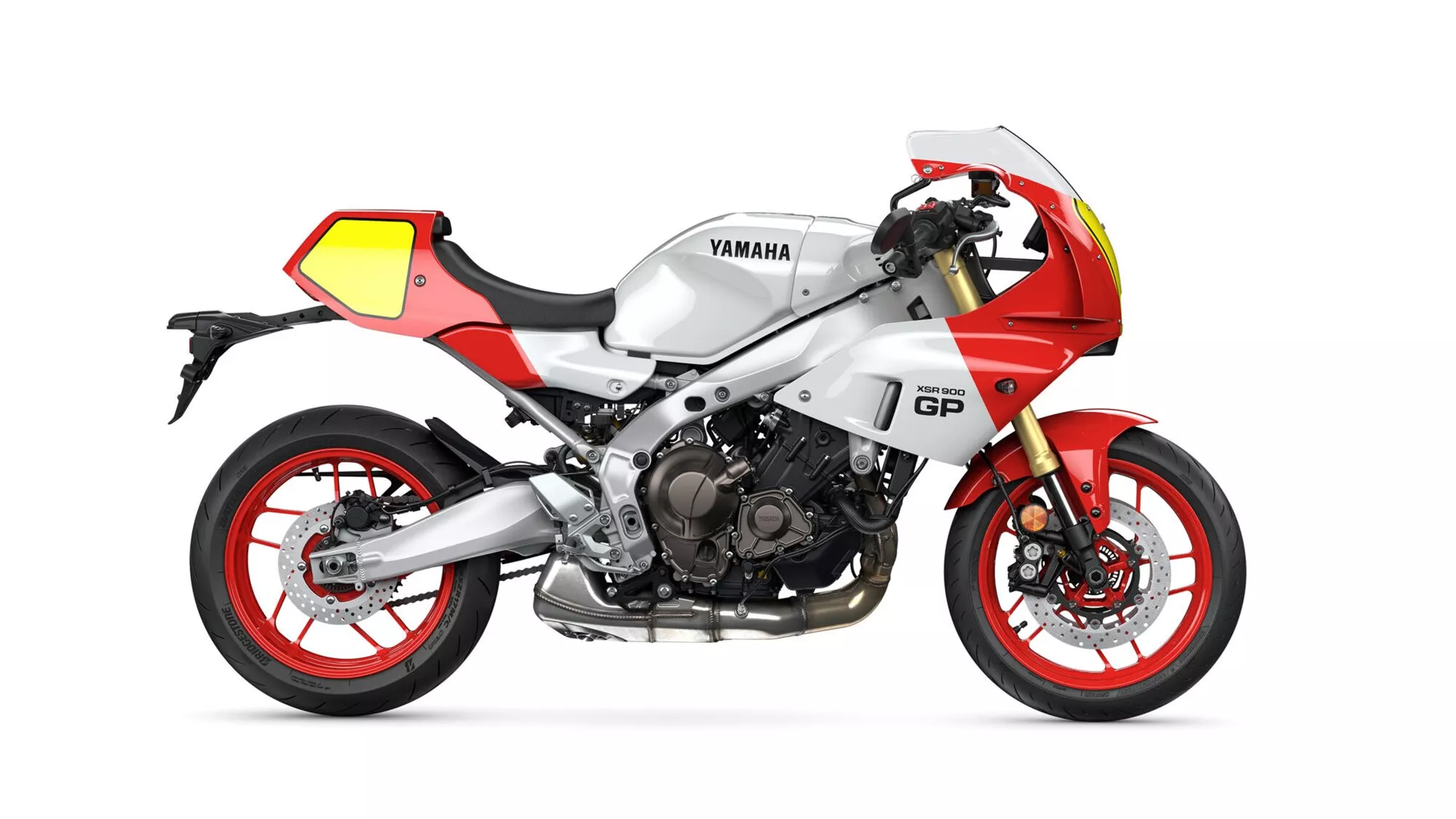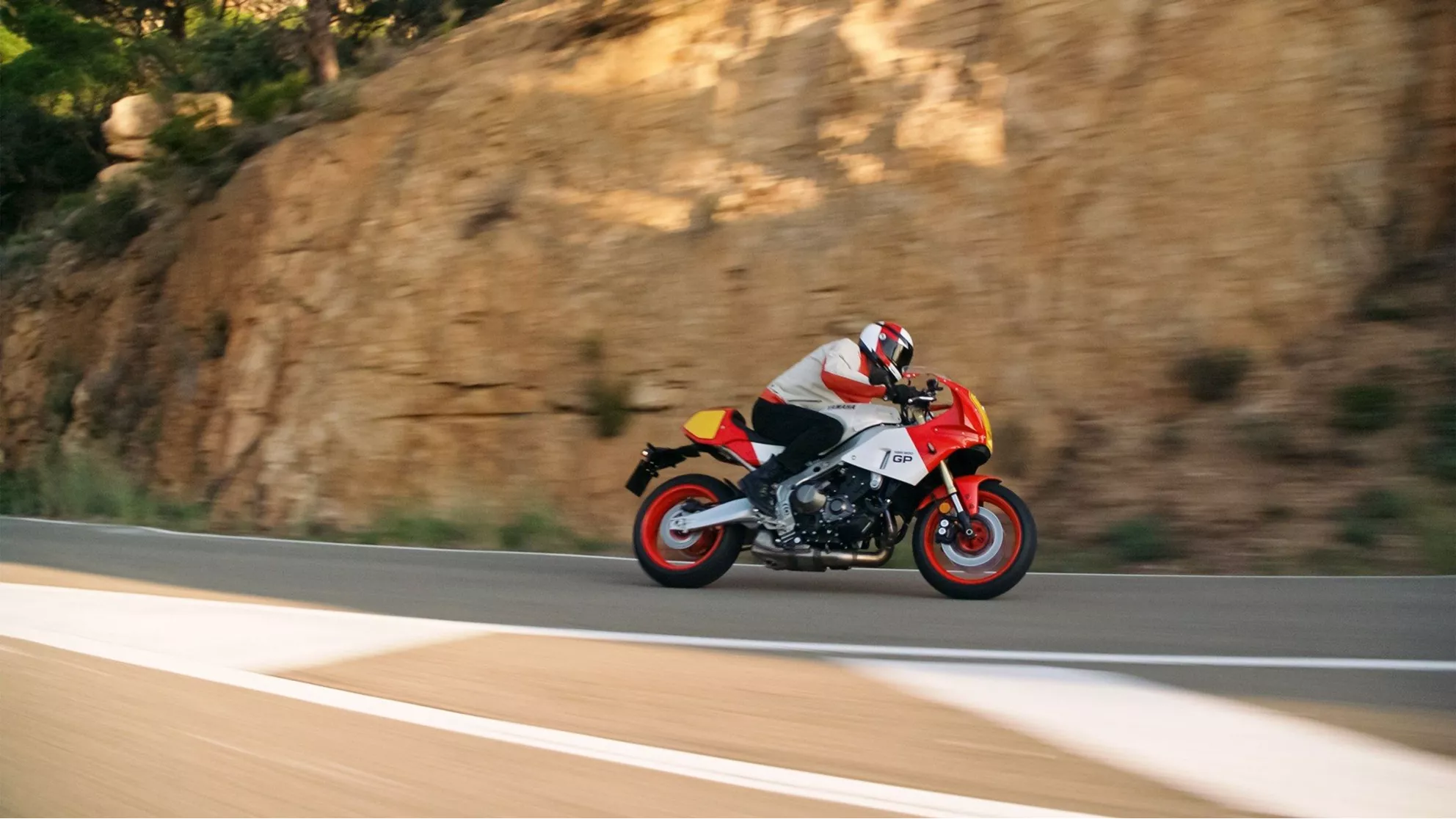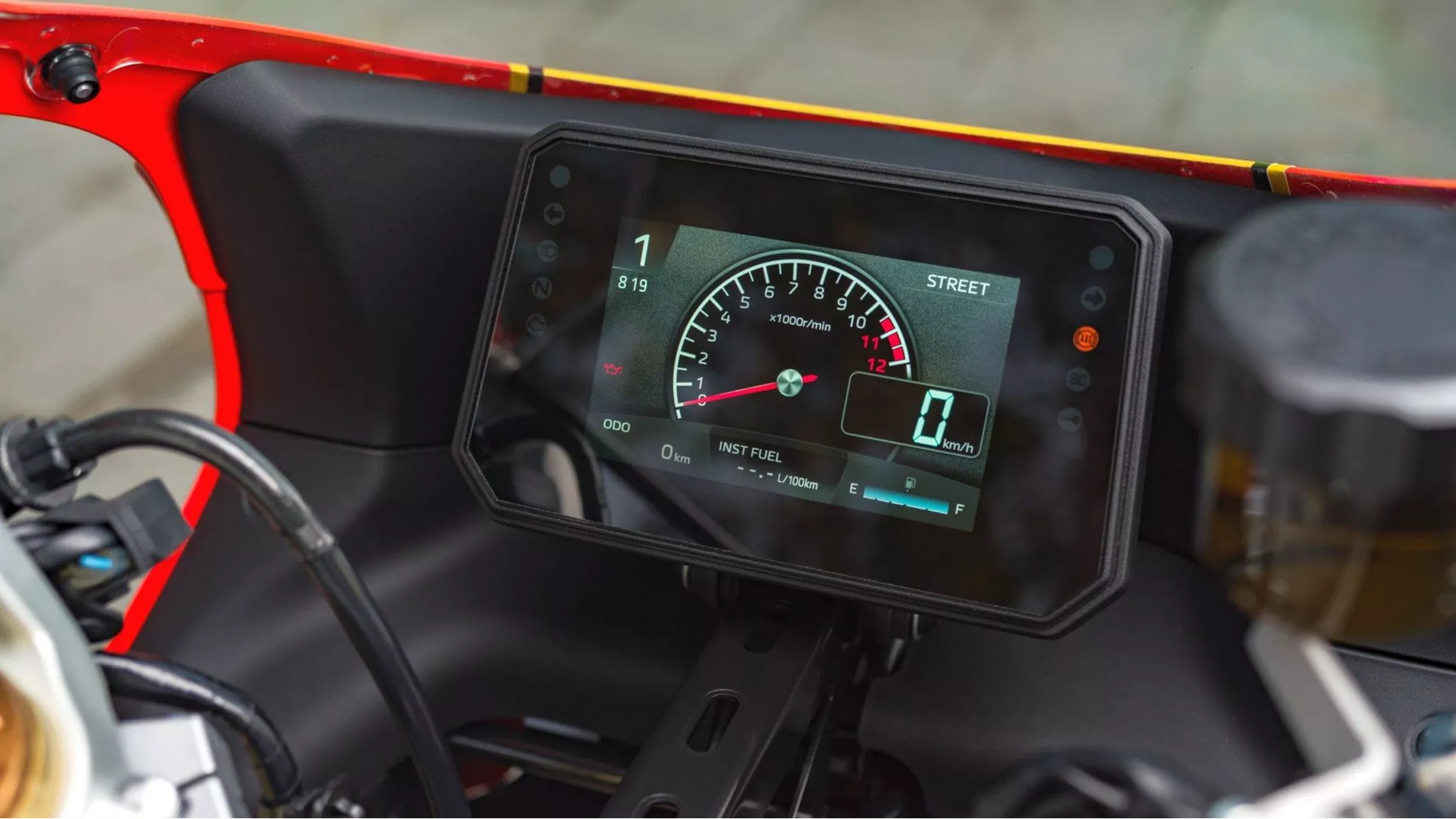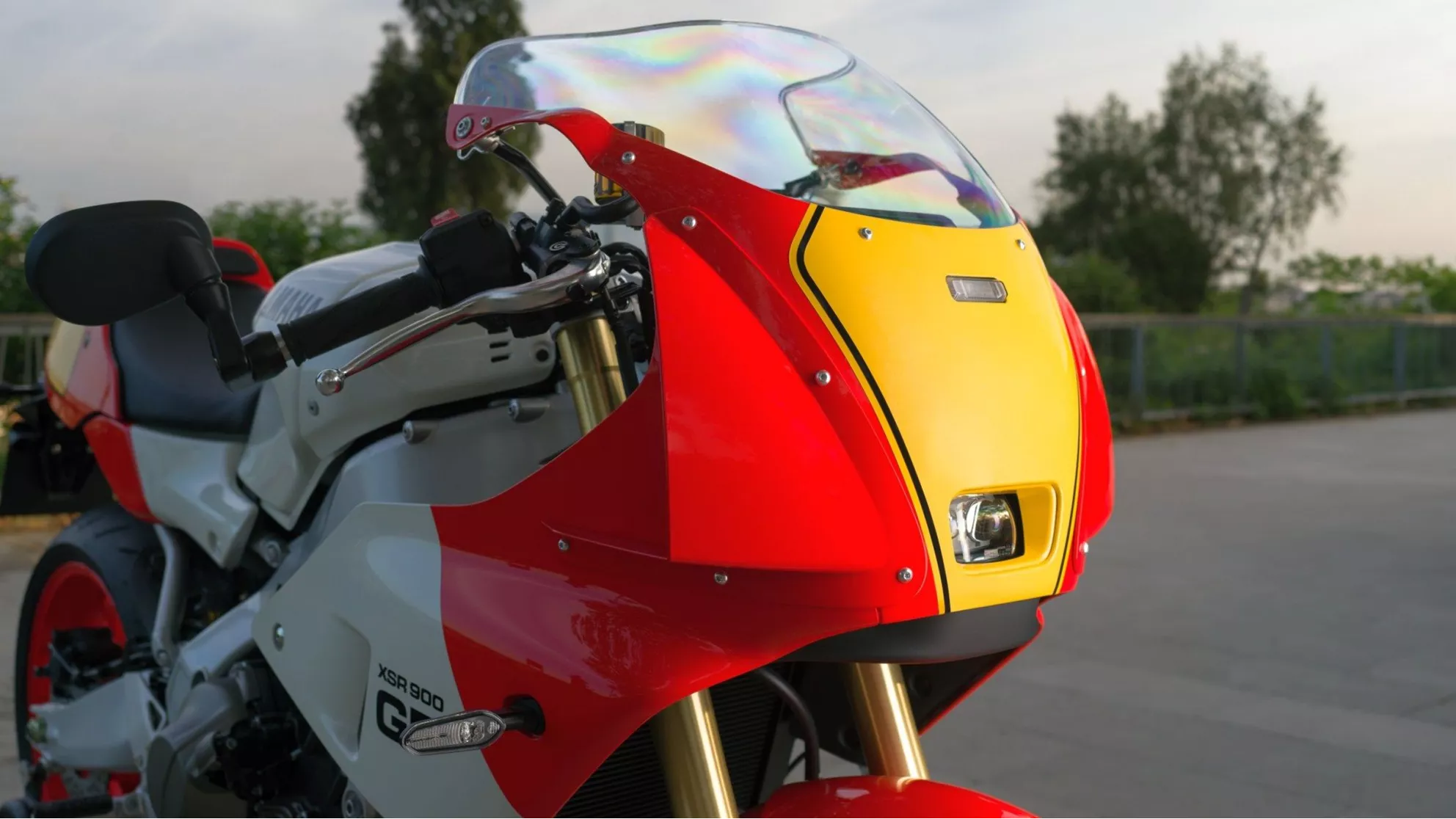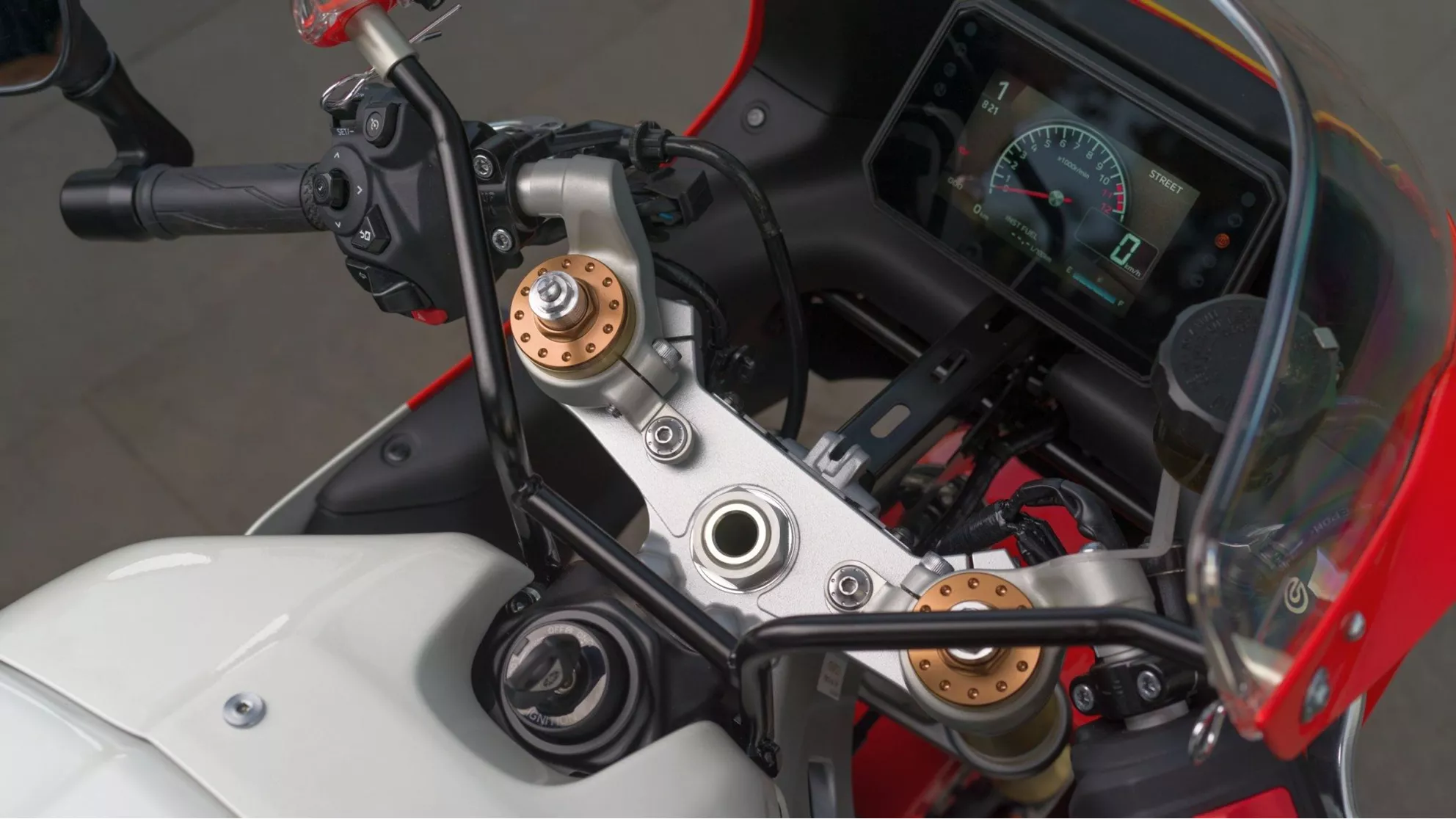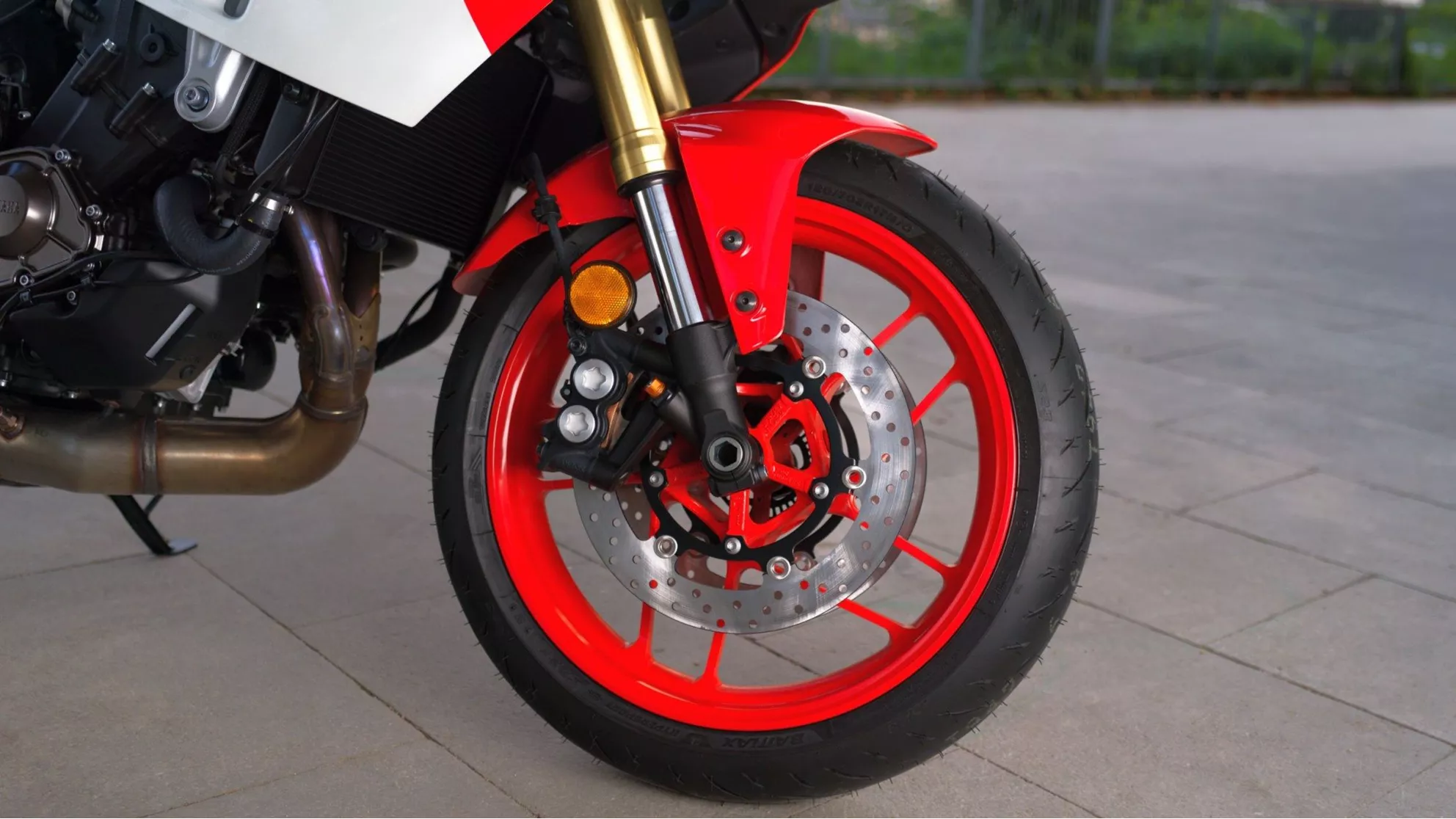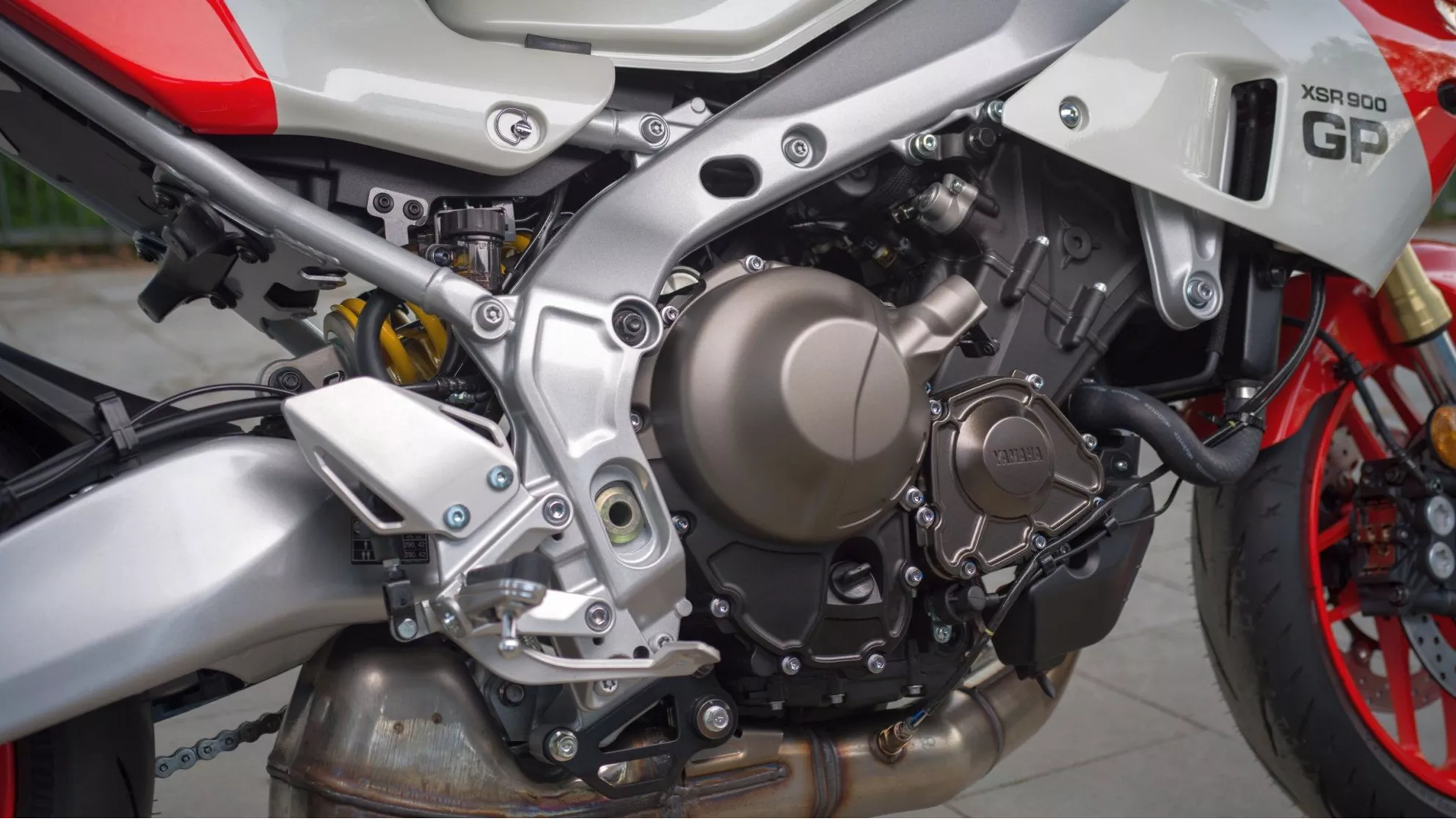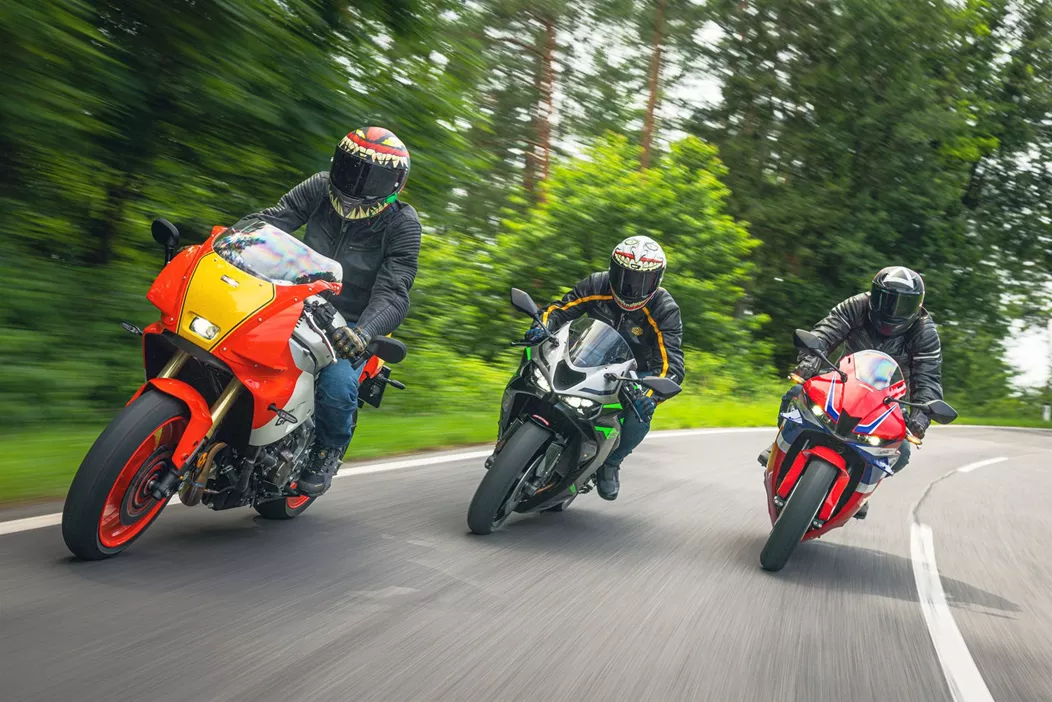Even in its standard form, it’s a real eye-catcher. A credible styling reminiscent of the 500cc GP machines from around the 1990s meets the most modern components. But as the Austrians say, there's always room for a little more! So, a few fine pieces from the accessories were directly bolted onto the XSR.
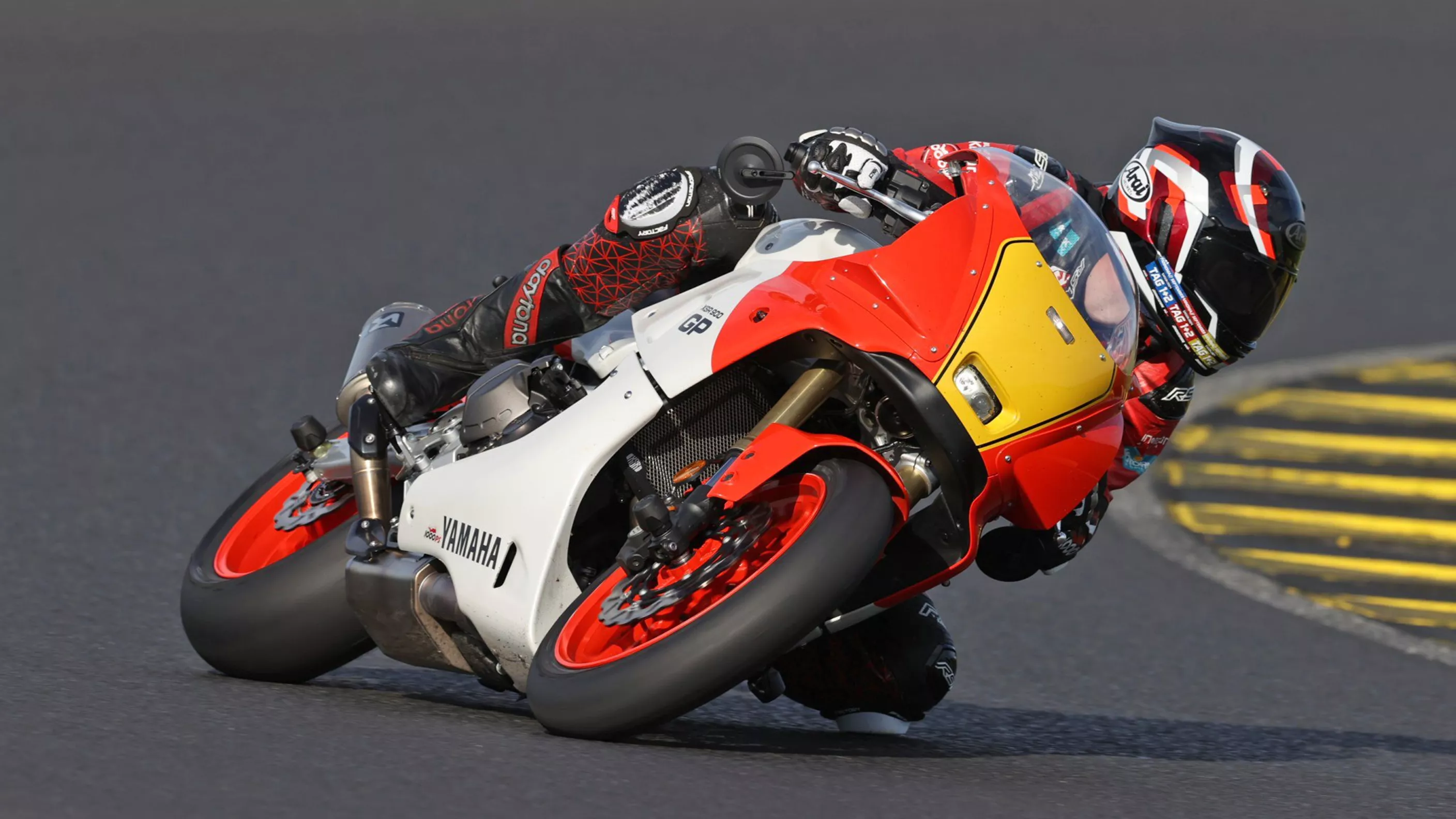
Yamaha XSR 900 GP in Review: Retro Sports on the Racetrack
A bit of fine-tuning unlocks great potential, both visually and technically.
The Yamaha XSR900 GP is designed for the open road, yet it also showcases surprisingly sporty qualities on the race track, which I examined more closely during a test at the Pannonia-Ring. With the right adjustments and a touch of fine-tuning, this bike reveals enormous potential...
&width=72&height=72&bgcolor=rgba_39_42_44_0&mode=crop)
Mex
published on 11/9/2024
XSR 900 GP Retro Look is completed with Akrapovic and fine Highsider parts
Without two essential components, I couldn't even think about the first ride or a photo shoot. The lower fairing for a continuous racing style and the high-mounted Akrapovic exhaust system complete the splendid neo-retro look. Very important! A compact license plate holder from Highsider along with discreet LED indicators ensure a clean appearance. A visual delight, especially at the rear, where the stylish Highsider Apollo Classic LED indicators also take over the taillight function, making the back part of the bike appear even slimmer and tidier.
Agility and Precision: An Amazingly Sporty Experience
For the test on the racetrack, a set of fresh Bridgestone V02 Slicks was fitted, and the fully adjustable KYB suspension was dialed a few clicks towards firmer damping. With this preparation, nothing stood in the way of the high-performance proceedings. From the outset, the XSR 900 GP impresses with its immense stability. It's a sensation you might not necessarily expect from a retro sports bike built on the basis of an agile naked bike. Already when entering the first two right-hand corners at the Hungarian Pannonia Ring, the XSR GP immediately inspires confidence. Particularly the precision in fast bends, along with the wonderfully neutral, almost effortless steering behavior, allows me to scorch surprisingly fast lap times into the asphalt right from the start on the racetrack.
XSR900 GP Chassis: The Compromise Between Sportiness and Long-Distance Riding
What truly surprised me positively is the balance between sportiness and comfort that the XSR900 GP offers. Whether in intense use on the race track or, a few days earlier, during extended tours on country roads - the seating position always seems appropriate. No question, the arrangement on the retro racer is sporty. Yet, the ergonomics prove to be a very successful compromise, which also turns out to be absolutely suitable for 500-kilometer day tours. The forward lean of the upper body, created by gripping the two clip-on handlebars, provides an excellent feel for the front end. The comparatively narrow width of the handlebars also contributes to stable handling and allows the rider to introduce less disturbance. Together with the relaxed knee angle, this also means that after a full day on the race track, you can dismount the bike quite relaxed.
Lean angle clearance of the Yamaha XSR900 GP: The limit for sporty use
One topic that becomes evident on the racetrack is the limited maximum lean angle - the downside of the previously mentioned comfortable seating position. Despite the sporty short pegs, the R-Fighter by Puig, which I had already installed in advance, as well as the higher of two standard mounting options, the footrests still scrape during spirited riding in corners. Especially at the apex of the curve, where the lean angle is most intense and you would like to tighten the line a bit more here and there, you notice the design-related limits of the XSR900 GP. At the rear wheel, there were still about three to four millimeters of unused slick, which also clearly shows on the tire that the possibilities cannot be fully exploited.
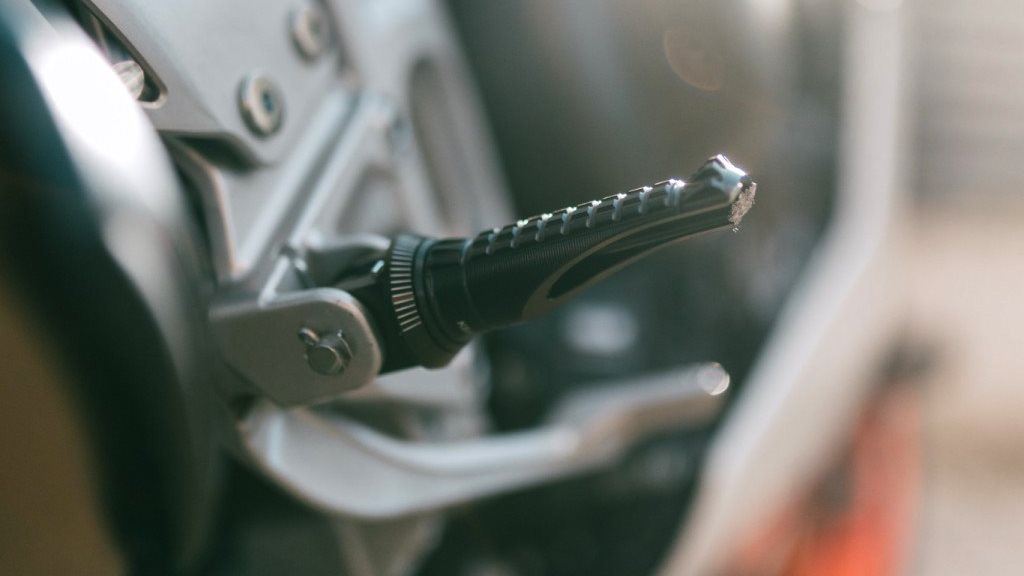
The maximum lean angle is a topic on the race track - the stylish, slim pegs from Puig had to endure some wear during the testing at the Hungarian Pannonia-Ring.
This shows that while the XSR900 GP has sporty ambitions, it is essentially designed for use on country roads. On the race track, one must live with its minor limitations, but that doesn't mean you can't have fun with the XSR GP on track days! Quite the opposite - with consistent lap times between 2:08 and 2:09, which I achieved during our test at the Pannonia Ring, you are definitely well-positioned in the amateur sports sector.
Yamaha XSR 900 GP Brakes Review: Room for Improvement!
Another minor weakness of the XSR, which becomes quickly apparent on the race track, is the braking performance. The standard brakes with rubber hoses and relatively small discs are absolutely sufficient for everyday use. However, once you bring the XSR on slicks to the track and brake hard over several laps, the lack of precision at the pressure point becomes evident. The braking system feels spongy and lacks transparency, especially when it comes to really intense deceleration maneuvers.
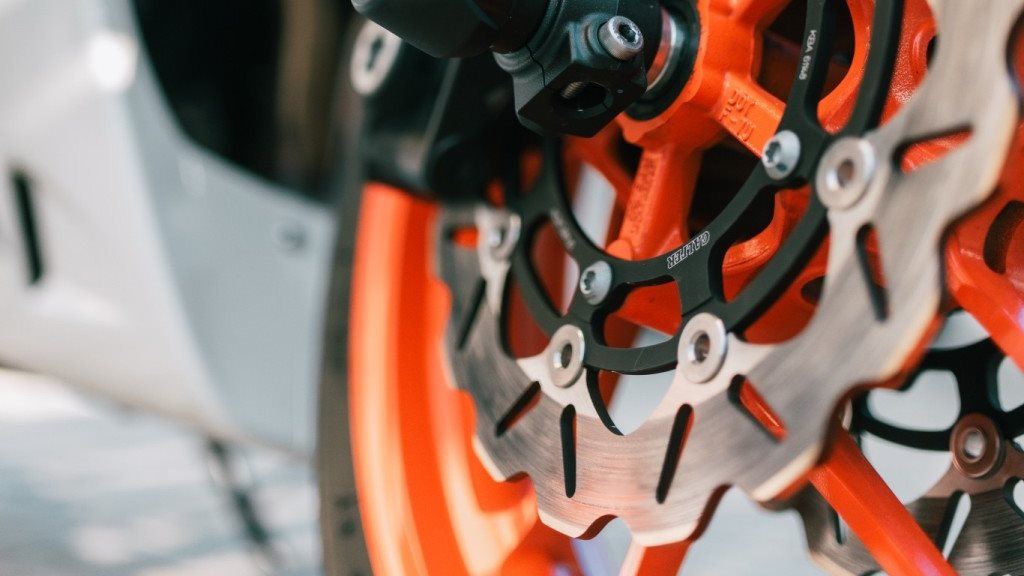
We made some adjustments to the brakes of the Yamaha XSR900 GP: Thicker Galfer discs, combined with SBS RST sintered pads and HEL steel braided lines, result in improved performance.
I've countered the spongy pressure point with HEL Performance steel braided lines. Additionally, thicker Galfer Wave brake discs that can absorb more heat and sporty RST sintered pads from SBS were installed. This setup noticeably improved the brake's performance. The initial bite is also sharper with this setup. I would say it's a worthwhile investment. However, when comparing the braking performance to current superbikes, it clearly lacks some of the performance and precision that one would expect from a serious sport motorcycle.
Electronics and Assistance Systems of the XSR900 GP: A Solid Package for Sporty Riders
Another advantage of the XSR 900 GP is its extensive electronic equipment, which also impresses on the race track. In the pre-configured sport mode or a self-assembled custom mode, the bike can be moved precisely and sportily. The traction control on level 1 serves as a good backup. It allows a brief moment that signals to the rider that the grip limit has been reached - after which fine regulation is applied for correction. The electronics thus only intervene in serious cases and do so very gently, without disturbing the flow of riding. A big compliment to Yamaha for this perfectly tuned, lean-angle-dependent regulation, which is already being used here in the middle class. Together with the smoothly working chassis, you can go full throttle out of the corners with full confidence. It's a truly joyful experience to fire the triple of the XSR out of the bends!
Summary after a tough day on the track
The Yamaha XSR 900 GP pleasantly surprised me at the Pannonia Ring. Its precise handling and excellent features make it a very sporty companion that also provides considerable riding pleasure on the race track. However, there are clear limits: the brakes and maximum lean angle are not quite at the level needed for permanent, intensive use on the race track. However, anyone looking for a versatile bike that performs well both on country roads and occasionally on track days will be more than satisfied with the XSR 900 GP!
- How much does a Yamaha XSR900 GP cost?
- Here you will find an overview of the price level of new and used motorbikes!
&width=60&height=60&bgcolor=rgba_39_42_44_0&mode=crop)
Yamaha XSR900 GP 2024 - Experiences and Expert Review
Mex
A credible styling reminiscent of the 500cc GP machines from around 1990 meets the most modern components from the CP3 kit. For the suspension components, Yamaha opted for high-quality, fully adjustable parts from KYB. The fork is the same as the one used in the MT-09 SP. The sporty base setup fits perfectly with this stunning retro racer. The standard electronic equipment is also impressive. All riding aids operate lean-sensitive, the quickshifter works excellently, and even a cruise control is on board. Those who can handle the sporty seating position can enjoy a dream motorcycle. Apart from the brakes, which could have a bit more bite, we find no real criticism to offer.
More from 1000PS Magazine
Yamaha XSR 900 GP in Review: Retro Sports on the Racetrack Images
Source: 1000PS
























































